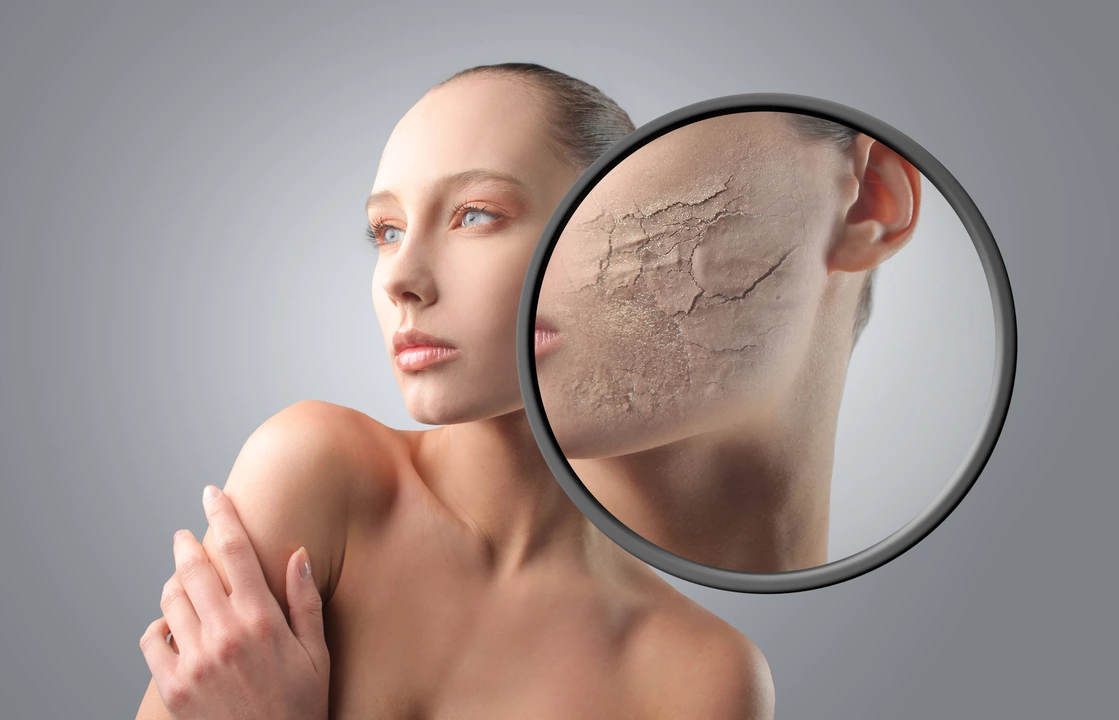Unveiling the Mystery of Scaly Skin
Scaly skin is a common problem that many people face in their daily lives. It can be irritating, unsightly, and even painful if left untreated. But what causes this overgrowth of skin, and how can we better understand the science behind it? In this article, we'll dive deeper into the reasons why our skin becomes scaly and what we can do to prevent and treat this condition. So, let's unveil the mystery of scaly skin together!
Understanding the Basics of Skin Growth and Shedding
Before we delve into the causes of scaly skin, it's important to understand how our skin grows and sheds. Our skin is made up of several layers, with the outermost layer called the epidermis. This layer is constantly regenerating, with new cells being produced at the bottom and pushing older cells towards the surface. As these older cells reach the surface, they die and are shed off, making room for new cells to take their place.
However, sometimes this process doesn't go as smoothly as it should. When the skin cells don't shed properly, they can accumulate on the surface and create patches of scaly, thickened skin. This can be caused by a variety of factors, which we'll explore in more detail in the following sections.
The Role of Genetics and Inherited Skin Conditions
One of the main reasons why some people develop scaly skin is due to genetics. There are several inherited skin conditions that can cause the skin to become thick and scaly, such as ichthyosis and psoriasis. These conditions are often caused by mutations in the genes responsible for regulating skin cell growth and shedding.
For example, ichthyosis is a group of genetic skin disorders characterized by dry, scaly skin. The most common form of ichthyosis, known as ichthyosis vulgaris, is caused by a genetic mutation that leads to a deficiency in the protein filaggrin, which is crucial for maintaining healthy skin. This deficiency causes the skin cells to stick together, leading to the formation of scaly patches.
Environmental Factors and Skin Damage
Aside from genetics, there are many environmental factors that can contribute to the development of scaly skin. These factors can cause damage to the skin, leading to an overgrowth of skin cells and the formation of scaly patches. Some common environmental factors that can cause scaly skin include:
- Excessive sun exposure: Prolonged exposure to the sun's ultraviolet (UV) rays can cause damage to the skin cells, leading to an increased risk of developing scaly skin.
- Harsh soaps and detergents: Using strong soaps and detergents can strip the skin of its natural oils, causing it to become dry and scaly.
- Cold, dry weather: Low humidity and cold temperatures can cause the skin to lose moisture, making it more prone to becoming dry and scaly.
By being aware of these environmental factors and taking steps to protect our skin, we can help prevent the development of scaly skin.
The Impact of Aging on Skin Health
As we age, our skin naturally becomes thinner and less elastic, making it more prone to developing scaly patches. This is because the production of collagen and elastin, two proteins responsible for maintaining the skin's elasticity and firmness, decreases as we get older. Additionally, the skin's ability to retain moisture decreases with age, leading to dryness and the formation of scaly patches.
While we cannot stop the aging process, we can take steps to maintain healthy skin as we age. This includes using gentle skincare products, moisturizing regularly, and protecting our skin from environmental factors such as sun exposure and harsh weather.
Treating Scaly Skin with Topical Medications and Moisturizers
When it comes to treating scaly skin, there are several options available to help manage the condition and improve the appearance of the skin. Topical medications, such as corticosteroid creams and retinoids, can help reduce inflammation and promote the shedding of dead skin cells. These treatments can be particularly effective for individuals with inherited skin conditions like ichthyosis and psoriasis.
Moisturizers are also a key component of treating scaly skin. Regularly applying a thick, emollient moisturizer can help lock in moisture and prevent the skin from becoming dry and scaly. Look for products that contain ingredients like hyaluronic acid, ceramides, and glycerin, as these can help to hydrate the skin and improve its barrier function.
When to Seek Professional Help for Scaly Skin
If you're struggling with persistent scaly skin that doesn't improve with over-the-counter treatments and lifestyle changes, it's important to consult with a dermatologist. A dermatologist can help determine the underlying cause of your scaly skin and recommend a tailored treatment plan to address your specific needs.
Remember, scaly skin can be more than just a cosmetic concern – it can also be a sign of an underlying health issue. By seeking professional help and taking a proactive approach to managing your skin's health, you can enjoy smoother, healthier skin.






The epidermal turnover is not merely a biological footnote, it is the very metaphor of life's relentless march.
When you consider that each keratinocyte spends a measured 28 days journeying from basal layer to the cornified veil, the drama of its finale becomes undeniable.
Yet modern lifestyles, drenched in synthetic detergents and UV excess, sabotage this choreography, leaving dead cells to cling like unwanted applause.
This is why we observe the infamous ichthyosis vulgaris, where a single filaggrin mutation transforms supple skin into a parchment of rebellion.
The genetics whisper a cautionary tale: even the smallest molecular misstep can cascade into a cacophony of scaling.
Environmental assaults, from the desert wind to the harsh winter, strip the lipid barrier, eroding the skin’s capacity to retain moisture.
The loss of ceramides is akin to removing the mortar from a brick wall; the structure collapses into flakes.
Age, too, contributes its quiet oppression, as collagen synthesis wanes and the skin’s elasticity dims like a fading spotlight.
One might argue that the skin is a democratic organ, allocating resources equally unless external pressures tip the balance toward desiccation.
Topical corticosteroids, while effective, must be wielded judiciously, lest we trade one problem for another in the form of adrenal suppression.
Retinoids, on the other hand, act as avant‑garde directors, urging the epithelium to shed its old costumes and don new, healthier attire.
Moisturizers enriched with hyaluronic acid function as diplomatic ambassadors, negotiating peace between the stratum corneum and the external world.
In practice, a regimen that couples gentle cleansers with occlusive emollients mirrors the balanced philosophy of Yin and Yang.
Neglecting this balance is tantamount to inviting chaos, and the skin will rebel with the very scaling we so despise.
Thus, understanding the science is not an academic indulgence but a pragmatic strategy to restore harmony to our outermost organ.